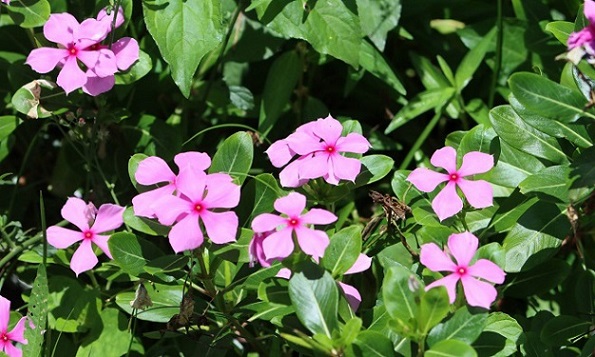Phytochemicals from Catharanthus Roseus Show New Hope for Fighting Neurodegeneration
Nikhil Prasad Fact checked by:Thailand Medical News Team Nov 16, 2025 3 months, 3 days, 12 hours, 37 minutes ago
Medical News: Natural Plant Molecules That May Help Protect the Brain
A team of researchers from Qassim University in Buraydah, King Abdulaziz University in Jeddah, and the King Salman Center for Disability Research in Riyadh has discovered promising evidence that phytochemicals found in the common medicinal plant Catharanthus roseus may help protect the brain against multiple degenerative pathways. Their work reveals that several phytochemicals from this plant may act on key brain proteins involved in Alzheimer’s disease, Parkinson’s disease and other disability-linked neurological conditions. This
Medical News report explains these findings in a simple and easy way for the general public.
 Phytochemicals from Catharanthus Roseus Show New Hope for Fighting Neurodegeneration
Why Neurodegeneration Needs Multi-Target Protection
Phytochemicals from Catharanthus Roseus Show New Hope for Fighting Neurodegeneration
Why Neurodegeneration Needs Multi-Target Protection
Many neurological disabilities happen because the brain does not fail in just one way—several systems break down at the same time. Memory, movement, learning and mood all depend on different chemical pathways. These pathways include those involved in clearing amyloid plaques, regulating dopamine, controlling glutamate activity and maintaining acetylcholine levels. Instead of trying to fix only one pathway, the researchers explored whether compounds from Catharanthus roseus could target several critical proteins at once. They found three natural molecules that consistently interacted strongly with five major brain targets linked to decline and disability.
What the Researchers Found
The team studied 318 natural compounds from the plant and identified three top candidates. These compounds showed strong binding to the brain proteins BACE1, AChE, MAO-B, NMDAR and the dopamine D1 receptor. These proteins influence memory, attention, learning, motor control and the formation of harmful brain plaques. The researchers then ran advanced computer simulations to see whether the plant molecules could stay attached to these proteins over time. The simulations showed that the compounds remained stable for long durations, suggesting real therapeutic potential. One phytochemical compound, catharoseumine, repeatedly showed strong interactions and excellent stability, particularly with BACE1 and AChE.
Why These Findings Matter
The results suggest that compounds from Catharanthus roseus might one day lead to new multi-target treatments for neurological disorders. These natural molecules showed the ability to act on several different brain systems at once, something current medications struggle to achieve. Although this study used computer modeling and not human testing, it provides strong early evidence that these plant compounds deserve laboratory and clinical study. If future research confirms these effects, such molecules could help slow memory loss, reduce damage from brain inflammation and support better nerve function in people living with disability-linked neurodegeneration. The findings highlight how nature-derived compounds may become an important tool in developing more effective and safer brain-protecting therapies.&
lt;br />
The study findings were published in the peer reviewed journal: Pharmaceuticals.
https://www.mdpi.com/1424-8247/18/11/1734
Warning from Thailand
Medical News: This study focuses on the extracted purified phytochemicals from the Catharanthus Roseus (Madagascar Periwinkle) plant which are safe at the observed dosing…do not attempt to consume any part of this plant even in small traces as the plant is highly toxic!)
For the latest on neurodegenerative diseases, keep on logging to Thailand
Medical News.
Read Also:
https://www.thailandmedical.news/articles/alzheimer,-dementia-
